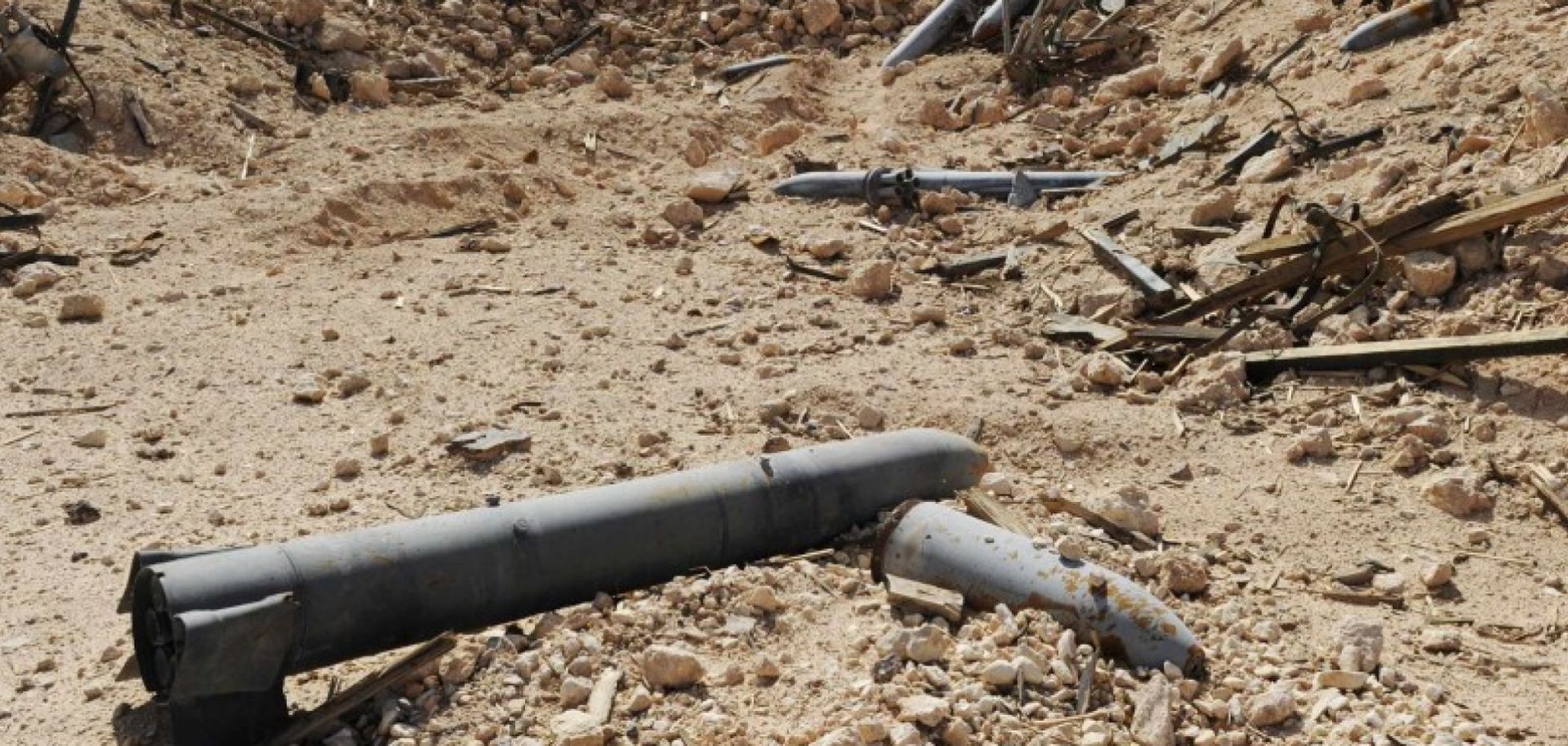ASSESSMENTS
Assessing Libya's Chemical Weapons Threat
Feb 15, 2016 | 09:30 GMT

Missiles and shells lie among the stones outside the town of Waddan, in southern Libya. The fall of Libya's government in 2011 left various weapons, potentially including chemical agents, available for the taking by rebel and jihadist groups.
(PHILIPPE DESMAZES/AFP/Getty Images)
Subscribe Now
SubscribeAlready have an account?
